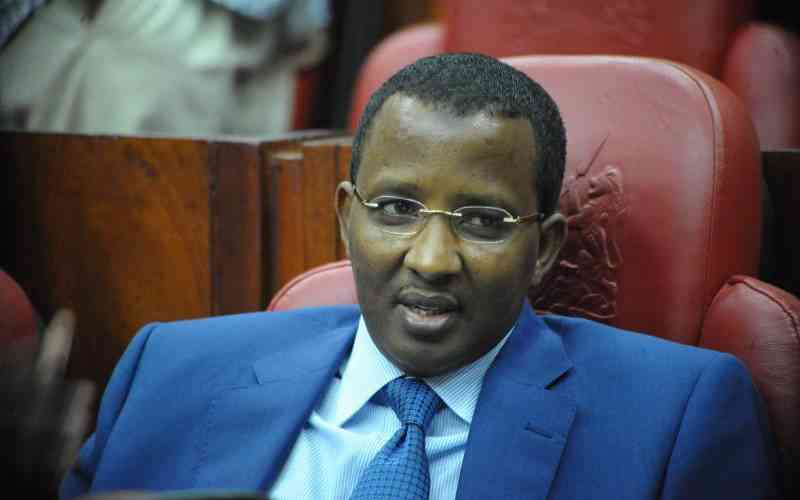
Financial inclusion allows underserved populations such as smallholder farmers to manage their incomes better, increase their productivity and reduce their vulnerability to poverty traps by removing hurdles that exclude people from the financial sector.
According to data from the World Bank, great strides have been made toward financial inclusion in the last decade, supported by mobile network coverage and technology expansion.
Between 2011 and 2017, at least 1.2 billion adults worldwide gained access to a bank account. However, the reality is that about 1.4 billion of them are unbanked, mainly in hard-to-reach areas and some of the most vulnerable.
Providing access to finance is only one aspect of financial inclusion. Encouraging and sustaining financial product and service usage by providing relevant services, building trust, improving customer service and ensuring regular training and capacity building for customers such as smallholder farmers are other aspects just as important for sustainability.
One way in which financial inclusion may be delivered, scaled and deepened is by incentivising private sector businesses that are built for-profit but focused on social good as well.
Supporting such businesses may include making direct investments in them, taking up equity in the businesses, offering them more attractive commercial financing, or creating relevant partnerships that improve their overall capabilities, market readiness and competitiveness.
While many approaches driving financial inclusion exist, the Mastercard Foundation Fund for Rural Prosperity is a unique vehicle deployed to de-risk innovative financial services and support the growth of a suite of relevant financial products and services for rural Africa through private sector businesses.
This $50 million (Sh6.9 billion) challenge fund was established by the Mastercard Foundation and is managed by KPMG East Africa's International Development Advisory Services.
Through a competitive process, this Fund selected and supported 38 private-sector businesses spread across 15 countries in Sub-Saharan Africa to drive financial inclusion among the underserved.
Through its eight-year journey, the Fund supported vastly different business models to innovate and scale up financial inclusion. For example, some participants are technology-driven like Apollo Agriculture, which leverages machine learning to deliver input finance and agronomic advice to smallholder farmers, or Copia which opened up e-commerce channels targeting underserved rural markets.
Other participants are insurance-based like APA Insurance, which provides affordable insurance services to rural Kenyan farmers or Pula Advisors, which develops and distributes insurance products and tailored agronomy advice to protect smallholder farmers from risks and increase their income.
The fund has also supported participants in the renewable energy sector like Easy Solar, which provides accessible and affordable solar-related products to remote and low-income households, and Baobab+, which provides a leasing experience for solar energy products based on energy savings to rural customers.
The portfolio also includes participants such as FutureLink Technologies in Uganda, which has developed and provides banking systems for savings and credit co-operatives (SACCOs) and microfinance institutions (MFIs).
Inuka Afrika, a non-deposit-taking microfinance firm based in Kenya, shows that women and the youth are emerging as a section of the population keenly interested in pursuing agriculture as an enterprise.
Stay informed. Subscribe to our newsletter
This is driven by the availability of responsive bundled services that come with the financial products offered.
In Uganda, Ibero, a coffee export firm, has improved the lives of local farmers as producers of green coffee beans by setting up a sustainable sourcing and marketing service known as 'Bloom'. Under Bloom, Ibero provides financing options to farmers including inputs such as fertiliser.
All these and more successes require private sector organisations and their financial inclusion-focused programmes to be sustainable despite constantly changing markets, environments and challenges, notably witnessed during the pandemic period.
In making the argument for more direct investment in support of financial inclusion, participating businesses in the fund were required to commit to matching the financial support (grants) provided in the project.
For example, the businesses sourced investments from single or multiple sources including commercial banks, existing shareholding and new partners willing to make direct investments into their programmes.
To date, over US$ 90 million (Sh12.4 billion) has been leveraged into these companies, outstripping the initial support made by the Fund itself by a ratio of almost 2:1.
Additionally, the Fund set about de-risking innovation in its portfolio to the extent that several of the businesses supported became more attractive to investors or attracted major commercial funding on their own merit, which was not easily accessible before.
Direct investments sourced by these businesses are being put to important use such as improving operations within the businesses, increasing their asset bases to deliver financial inclusion, upgrading their technology use for data modelling, efficiency and scale and extending their physical agent networks to build relationships with rural customers.
As a result of the work of the Fund portfolio, millions of underserved customers are now better integrated into financial systems, taking loans to grow their farms, using insurance to withstand shocks, buying affordable assets like solar water pumps to increase productivity and more.
As shown in the latest Fund impact report, a staggering 5.3 million customers in sub-Saharan Africa have now been supported through the work of these 38 incentivised and supported businesses.
Nashipae is the Mastercard Foundation Fund For Rural Prosperity Communications Manager, while Wilson is the Fund Grants Manager.
 The Standard Group Plc is a
multi-media organization with investments in media platforms spanning newspaper
print operations, television, radio broadcasting, digital and online services. The
Standard Group is recognized as a leading multi-media house in Kenya with a key
influence in matters of national and international interest.
The Standard Group Plc is a
multi-media organization with investments in media platforms spanning newspaper
print operations, television, radio broadcasting, digital and online services. The
Standard Group is recognized as a leading multi-media house in Kenya with a key
influence in matters of national and international interest.
 The Standard Group Plc is a
multi-media organization with investments in media platforms spanning newspaper
print operations, television, radio broadcasting, digital and online services. The
Standard Group is recognized as a leading multi-media house in Kenya with a key
influence in matters of national and international interest.
The Standard Group Plc is a
multi-media organization with investments in media platforms spanning newspaper
print operations, television, radio broadcasting, digital and online services. The
Standard Group is recognized as a leading multi-media house in Kenya with a key
influence in matters of national and international interest.






